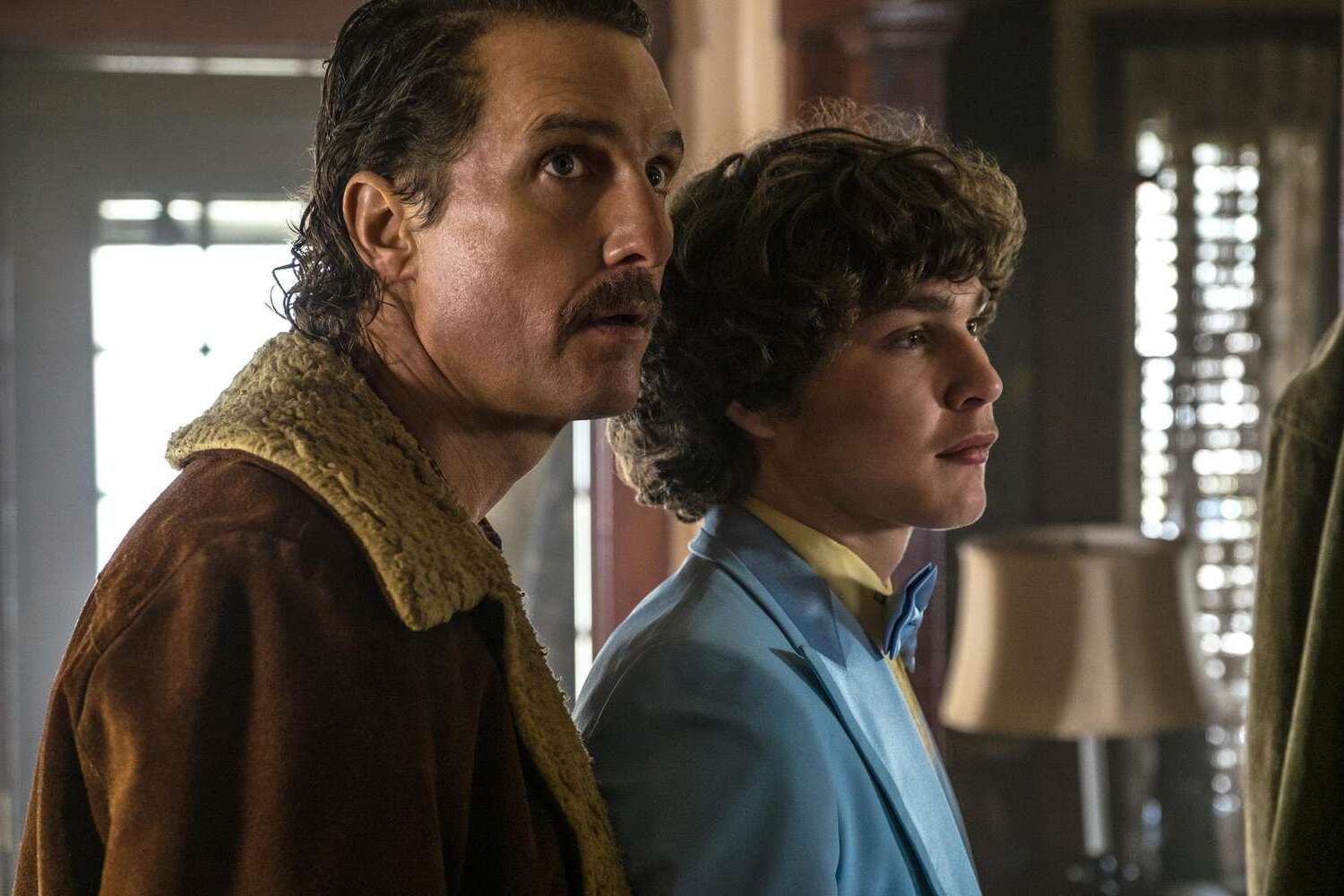
Who is White Boy Rick? Born Richard Wershe Jr., White Boy Rick became infamous as a teenage FBI informant and later, a drug dealer in Detroit during the 1980s. His story is a wild ride through crime, law enforcement, and the justice system. At just 14, he was recruited by the FBI to infiltrate Detroit's drug underworld. By 17, he was arrested for possessing eight kilos of cocaine. Sentenced to life in prison, his case sparked debates about justice and redemption. After serving over 30 years, he was released in 2020. White Boy Rick's life is a mix of danger, intrigue, and controversy.
Key Takeaways:
- White Boy Rick, a teenage FBI informant turned drug dealer, served decades in prison before his parole in 2017. His story inspired a Hollywood movie and sparked debates on juvenile sentencing and the war on drugs.
- Despite facing a life sentence for a nonviolent drug offense, White Boy Rick has become a public figure advocating for criminal justice reform. His resilience, family support, and post-prison endeavors continue to shape his evolving story.
Who is White Boy Rick?
Richard Wershe Jr., famously known as White Boy Rick, has a story that’s both fascinating and tragic. His life has been the subject of books, documentaries, and even a Hollywood movie. Here are some intriguing facts about him.
-
Born in Detroit: Richard Wershe Jr. was born on July 18, 1969, in Detroit, Michigan.
-
Nickname Origin: He earned the nickname "White Boy Rick" due to being one of the few white individuals involved in Detroit's predominantly African American drug scene.
-
Early Start: Wershe began his involvement in the drug trade at just 14 years old.
-
FBI Informant: By age 15, he was recruited by the FBI to be an informant, providing information on Detroit's drug operations.
-
Double Life: While attending high school, he was simultaneously working undercover for federal agents.
Rise in the Drug World
White Boy Rick's ascent in the drug world was rapid and dangerous. His connections and activities made him a significant player in Detroit's underworld.
-
Drug Dealer: Despite his role as an informant, Wershe became a drug dealer, amassing wealth and influence.
-
Luxury Lifestyle: He lived a lavish lifestyle, driving expensive cars and wearing designer clothes.
-
Connections: Wershe had connections with some of Detroit's most notorious drug lords, including the Curry brothers.
-
Arrest: In 1987, at the age of 17, he was arrested for possessing eight kilograms of cocaine.
-
Sentencing: He was sentenced to life in prison under Michigan's harsh drug laws, despite his cooperation with the FBI.
Life in Prison
Wershe's time in prison was marked by numerous attempts to gain his freedom. His story continued to attract attention and controversy.
-
Longest-Serving Nonviolent Juvenile Offender: He became one of the longest-serving nonviolent juvenile offenders in Michigan's history.
-
Appeals: Over the years, Wershe filed multiple appeals and petitions for clemency, all of which were initially denied.
-
Media Attention: His case garnered significant media attention, leading to documentaries and news stories highlighting his plight.
-
Supporters: Many supporters, including journalists and activists, campaigned for his release, arguing that his sentence was excessively harsh.
-
Parole: After serving nearly 30 years, Wershe was granted parole in 2017.
Post-Prison Life
After his release, Wershe faced new challenges and opportunities. His story continued to evolve as he adjusted to life outside prison.
-
Florida Prison: Despite being paroled in Michigan, he was transferred to a Florida prison to serve time for a separate car theft ring conviction.
-
Final Release: Wershe was finally released from prison in Florida in July 2020.
-
Reintegration: Adjusting to life outside prison has been a significant challenge for Wershe, who spent most of his life behind bars.
-
Public Speaking: He has taken up public speaking, sharing his story and advocating for criminal justice reform.
-
Media Projects: Wershe has been involved in various media projects, including consulting for films and documentaries about his life.
Cultural Impact
White Boy Rick's story has left a lasting impact on popular culture, inspiring various forms of media and public discourse.
-
Documentaries: Several documentaries have been made about his life, including "White Boy" on Netflix.
-
Hollywood Movie: In 2018, a Hollywood movie titled "White Boy Rick" was released, starring Matthew McConaughey and Richie Merritt.
-
Books: His story has been chronicled in books, providing detailed accounts of his life and the drug trade in Detroit.
-
Music: Wershe's life has even inspired songs and references in hip-hop music, reflecting his influence on urban culture.
-
Public Figure: Despite his criminal past, Wershe has become a public figure, often speaking out on issues related to the criminal justice system.
Legal and Social Issues
Wershe's case highlights several legal and social issues, particularly regarding juvenile sentencing and the war on drugs.
-
Juvenile Sentencing: His life sentence for a nonviolent drug offense sparked debates about the fairness of juvenile sentencing laws.
-
War on Drugs: Wershe's story is often cited in discussions about the effectiveness and consequences of the war on drugs.
-
Informant Use: His role as a teenage informant raised ethical questions about the use of minors in undercover operations.
-
Clemency Efforts: Efforts to secure clemency for Wershe highlighted the challenges of obtaining relief for long-term prisoners.
-
Reform Advocacy: Wershe has become an advocate for criminal justice reform, using his experience to push for changes in the system.
Personal Life
Beyond his public persona, Wershe's personal life has been marked by both struggles and resilience.
-
Family: Wershe has maintained relationships with his family, who supported him throughout his incarceration.
-
Health Issues: He has faced various health issues, partly due to the long years spent in prison.
-
Education: During his time in prison, Wershe pursued education, earning his GED and taking college courses.
-
Relationships: Adjusting to personal relationships outside prison has been challenging, given his long absence from society.
-
Future Plans: Wershe continues to plan for his future, focusing on advocacy, public speaking, and rebuilding his life.
The Final Chapter
White Boy Rick's story is a wild ride through crime, betrayal, and redemption. From being one of the youngest FBI informants to serving decades in prison, his life is a mix of highs and lows. His tale shows how choices can lead to unexpected paths, sometimes with harsh consequences. Despite the challenges, Rick's resilience and determination to rebuild his life are inspiring. His journey reminds us that even in the darkest times, there's always a chance for a fresh start. Whether you see him as a victim of circumstance or a product of his environment, White Boy Rick's story is a powerful example of the complexities of life. Keep these facts in mind next time you hear his name, and remember, everyone has a story worth telling.
Frequently Asked Questions
Was this page helpful?
Our commitment to delivering trustworthy and engaging content is at the heart of what we do. Each fact on our site is contributed by real users like you, bringing a wealth of diverse insights and information. To ensure the highest standards of accuracy and reliability, our dedicated editors meticulously review each submission. This process guarantees that the facts we share are not only fascinating but also credible. Trust in our commitment to quality and authenticity as you explore and learn with us.


